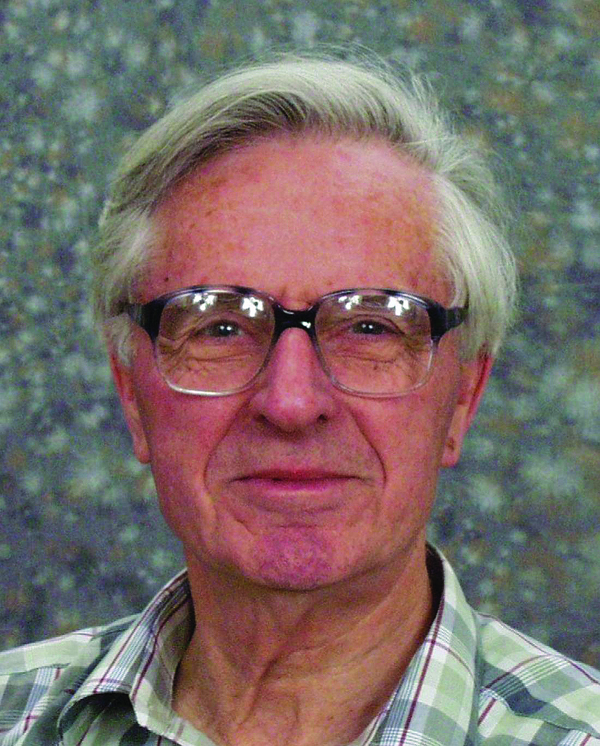
Feb. 28, 2008 – The University of Utah College of Science will host Sir Arnold W. Wolfendale, 14th Astronomer Royal of Great Britain, when he visits Salt Lake City March 3-7 to present public lectures and visit a local high school.
“We hope the university community and the local community take advantage of this rare opportunity to see and hear such a dignified international guest as Sir Arnold,” says Pierre Sokolsky, dean of the College of Science.
Sir Arnold will present several free, public lectures and seminars at the university, and visit West High School to give a talk during a student assembly. Media representatives and the public are invited to attend the events below.
- Keynote lecture titled, “Time: From Harrison’s Clocks to the Possibility of New Physics,” 7 p.m. Wednesday, March 5, Aline Wilmot Skaggs Biology Building Auditorium, University of Utah campus.
In the early 1700s, Great Britain and other countries struggled with the problem of longitude and accurate navigation of ships at sea. The problem was so difficult that the British Parliament in 1714 offered what was a huge fortune at the time (20,000 pounds) for a solution of longitude to an accuracy of 30 nautical miles or better.
“Although the astronomers should have gained the prize, it was a self-taught clockmaker, John Harrison, who, after Herculean efforts and much opposition, succeeded,” says Sir Arnold.
He will discuss the physics of Harrison’s clocks and explore modern improvements in time-keeping, including evidence for the lengthening day and atomic clocks, and recent work that suggests a whole new physics is on the horizon.
Other major events include:
- Lecture on “The Public Understanding of Science,” 10:45 a.m. Tuesday, March 4, Hinckley Institute of Politics Forum, room 225 Orson Spencer Hall, on campus.
Sir Arnold will present and discuss the Wolfendale Report, a study commissioned by the British government in the early 1990s to investigate the public’s understanding and support of scientific research and the resulting implications of such support, or lack thereof.
- Lecture on “Cosmic Rays and Global Warming,” 11 a.m. Wednesday, March 5, room 334 James Fletcher Building, on campus.
It has been suggested that a major part of the global warming cycle is due to the effect of cosmic rays bombarding the Earth’s atmosphere, specifically their role in stimulating cloud formation. Sir Arnold will address scientific data on the issue.
- Lecture on “The Search for Intelligent Life,” 9 a.m. Friday, March 7, main auditorium, West High School, 241 North 300 West, Salt Lake City.
One of the great questions of our age is, “Are we alone in the universe?” This lecture will examine historical attitudes to the question and the science behind contemporary searches for extraterrestrial life. The views of the student audience will be sought and Sir Arnold will present his personal conclusions.
The Astronomer Royal of Great Britain is a senior position in the Royal Household and dates back to 1675. Sir Arnold served as the 14th Astronomer Royal from 1991 to 1995, prior to the incumbent, Martin Rees.
Sir Arnold graduated with a B.Sc. in physics from the University of Manchester in 1948, followed by a Ph.D. in 1953 and a D.Sc. in 1970. He was elected a Fellow of the Royal Astronomical Society in 1973 and a Fellow of the Royal Society in 1977. He retired from teaching in 1992 and was knighted in 1995.
In 1996 he became a professor of experimental physics with the Royal Institution of Great Britain and finished a two-year term as president of The Institute of Physics. In 1999, he accepted a two-year term as president of the European Physical Society.
During his career, he held academic posts at the universities of Manchester, Durham, Ceylon and Hong Kong, and was head of department at Durham where he remains an emeritus professor of physics. He has written, edited or contributed to eleven books and published more than 500 papers in professional journals.
